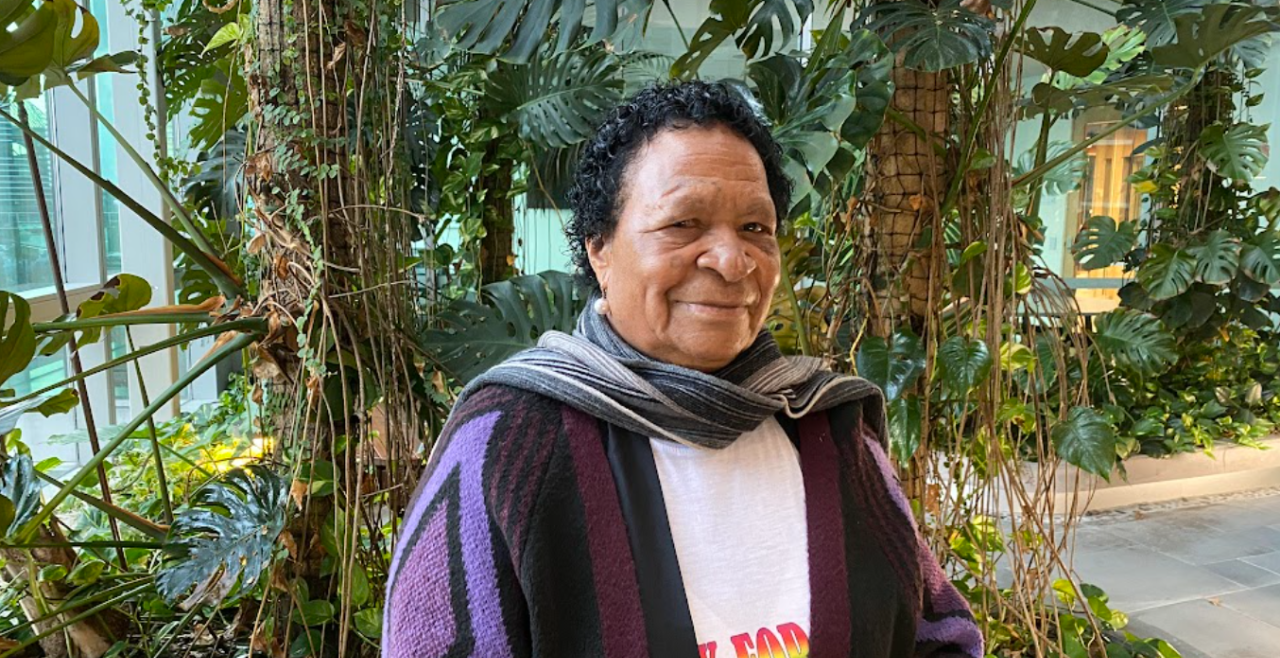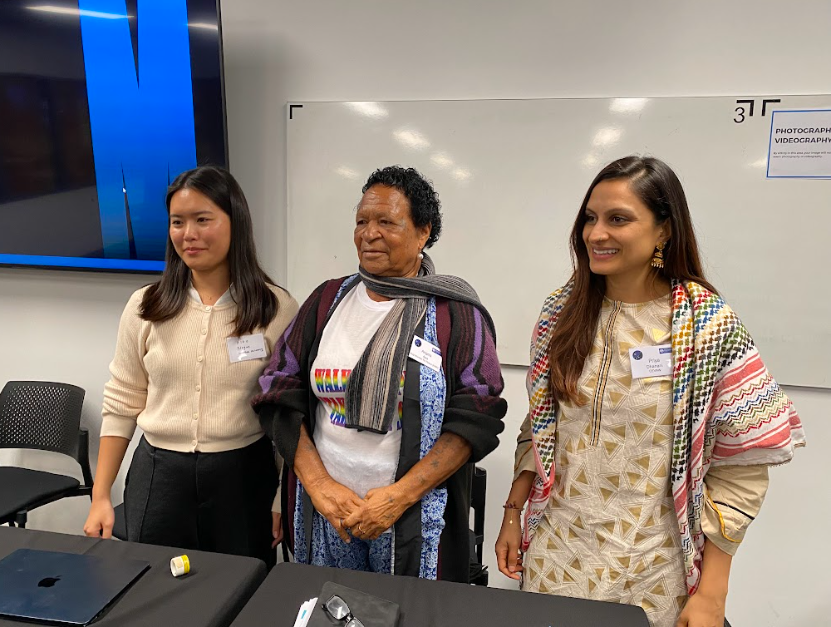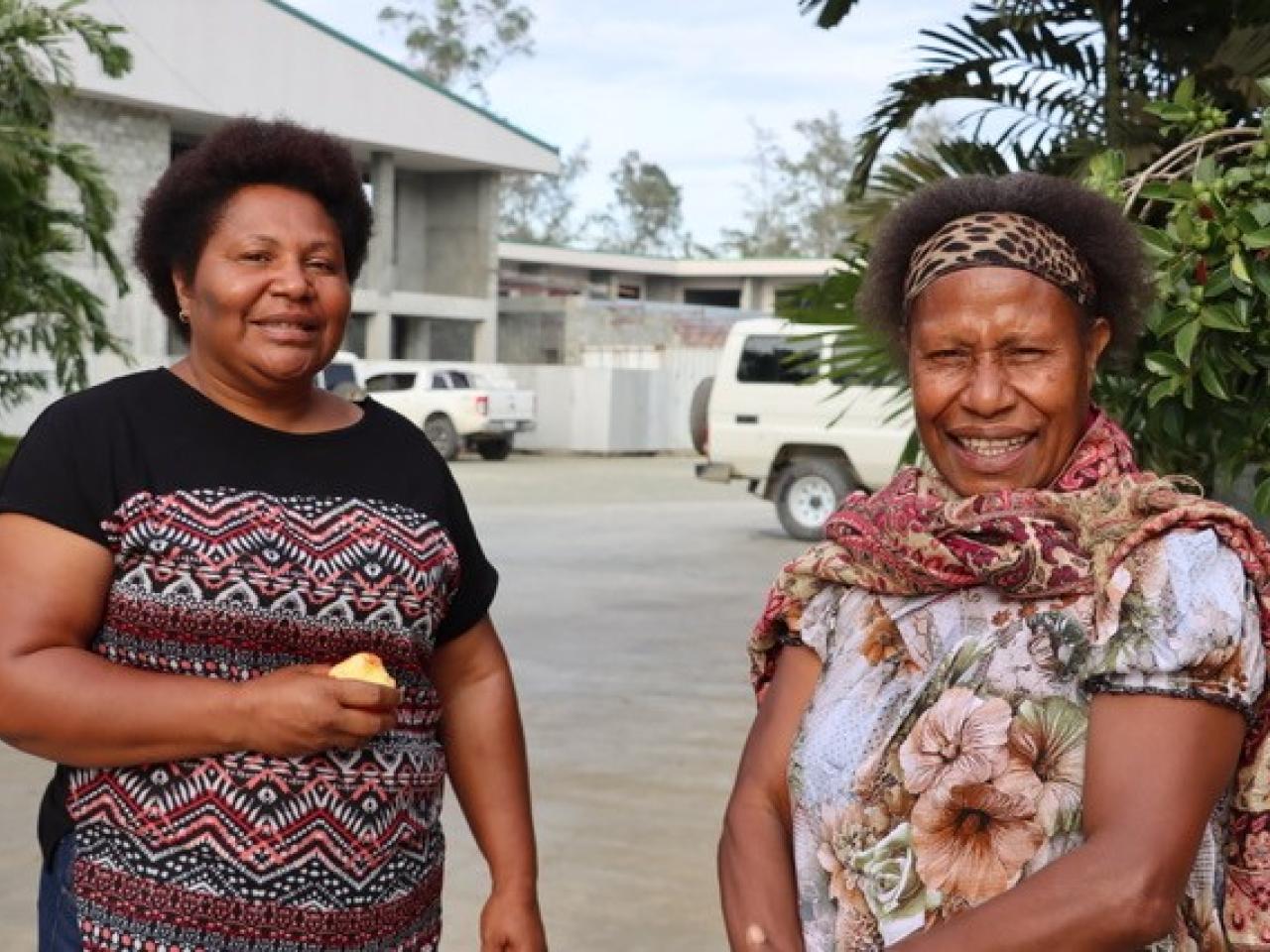“Enemies are for men, not for us women” – How Kup Women for Peace is ending conflict and supporting survivors of sexual and gender-based violence

MELBOURNE, Australia - 19 June marks International Day for the Elimination of Sexual Violence in Conflict, a day to reflect on the impact of this heinous war crime and the need to stand with survivors to break the cycle of violence.
It also provides an opportunity to highlight the critical role of women in peacebuilding, and the need to invest in local civil society organizations working in communities to support survivors and prevent future conflict.
Below, President of Papua New Guinea’s Kup Women for Peace, Angela Apa, speaks about her decades of activism to end tribal conflict in Papua New Guinea and to address other forms of violence against women and girls. Kup Women for Peace is a community organization based in Simbu Province that works alongside formal and traditional structures of leadership to change attitudes about both violence and women’s roles in society.
From 2019 to 2023, UNDP, Women's Peace and Humanitarian Fund (WPHF) and Spotlight Initiative channelled funds to Kup Women for Peace and other women's rights organizations working on eliminating violence against women and girls in conflict-affected and humanitarian settings.
Why are you called “Mama Angela”?
Because I treat everyone like my daughters and sons. When they have problems, they come to me for comfort. I share whatever I have with them, pray with them, counsel them. So they call me “Mama”, even the men.
How do women use their influence to broker peace between tribes but also within families?
That power comes from participating as a woman leader in the community. I do a lot of awareness on human rights and the laws affecting the rights of women and men. I explain that violence is stopping the development of the community. They realize that when there’s a lot of fighting and hatred, it’s not bringing development into their community or their family. It stops children from going to school, and that hinders prosperity in the community. Most of the time, I am their TV, their newsletter, their source of knowledge, so people trust our work. They respect the work that Kup Women for Peace is doing. The network in the Highlands is very strong. If I cannot solve a problem, I call another group and we have a case conference.
"Women and girls were being raped, cash crops and houses were being destroyed, and boys who should’ve been in school were killed because of tribal fighting." - Angela Apa, President of Kup Women for Peace
How did you end the tribal conflict between your own tribe and others?
In 1999, we did a lot of groundwork. I had to walk from my tribe to my two enemy tribes, [and talk to] my enemy sisters, Agnes Sil and Mary Kini [co-founders of Kup Women for Peace]. Our men used to fight against each other and when we were children, we saw what was happening. Girls were being forced to marry the men with guns, women and girls were being raped in the trouble fighting, cash crops and houses were being destroyed, and boys who should’ve been in school were killed because of tribal fighting.
We made a grand survey walking from enemy tribe to enemy tribe. We said, “We will make peace”. One year we did awareness, then we did training on conflict resolution, peacebuilding and after this groundwork, we said, “Enemies are for men, not for us women”. We educated all the women, brought them all together and made a mass awareness campaign. All the enemy women from each tribe joined hands and said, “Who is the man who has the guts to fight us?” The men were not afraid, but they realized that we meant business.
A big reconciliation happened in 2000 and all the tribes came together. To this day, no fighting. If there’s going to be a fight, someone will call me, any time of the day or night, and I will call the police.
Please share your experience addressing sorcery accusation-related violence (SARV) in Papua New Guinea.
It’s like witchcraft. In the Highlands region, SARV is mostly done when somebody dies. If the leader in the community, or his wife or child dies, someone may accuse vulnerable men, women, children or even the whole family of sorcery. When they are accused, their houses are burned, sometimes they are bashed up. When that happens, they come to us and we put them in crisis support. We also refer them to the police station for legal action and we have a lawyer who writes their affidavit and helps them go to court.
"To this day, no fighting. If there’s going to be a fight, someone will call me." - Ms. Apa
Is SARV usually directed at women?
Men are often not accused because they can fight back. But women – vulnerable mothers, widows who have no sons – they will be accused of sorcery. Vulnerable families, especially, who may not be financially [well off] but may be rich in land or resources. Through jealousy or if they want to get their property, perpetrators will accuse vulnerable people to get that land and resources.
We try to save the survivor and put them in a secure place. If they’ve been beaten up, that may be the hospital, where we have a small area where they can be treated. After the case is referred to the justice system, we mediate – discussing with the police, the village court magistrates, village leaders, and both the perpetrator’s and the survivor’s family. We do a lot of advocacy around the laws against SARV.
How does Kup Women for Peace approach restorative justice?
If I take your coat, I have to restore it back. The damage is done, people are upset, but the house has to be rebuilt. We have a peacemaking custom called Brukim Sugar, which means “breaking sugar”. We have sugar cane in the villages that grows very tall. They cut it, and each side takes half. Now, sometimes we use Coca-Cola. We take one each, offer it to each other and then we share and drink. It’s a sign of peacemaking.
As told to Anne Fullerton following Ms. Apa's participation on the WPHF and Spotlight Initiative-supported panel at Justice Denied — Fighting Widespread Impunity for Conflict-Related Sexual Violence (CRSV), 2-3 June in Melbourne, Australia. Interview has been edited for length and clarity.


